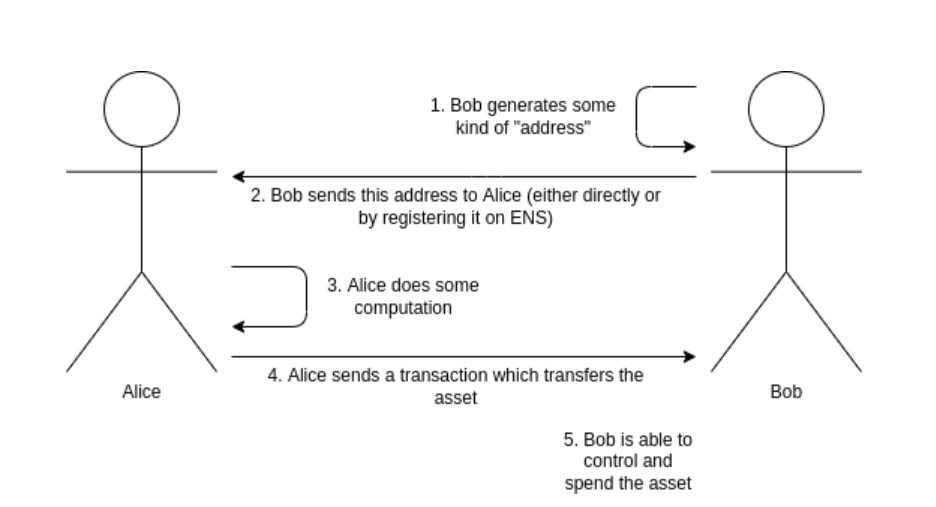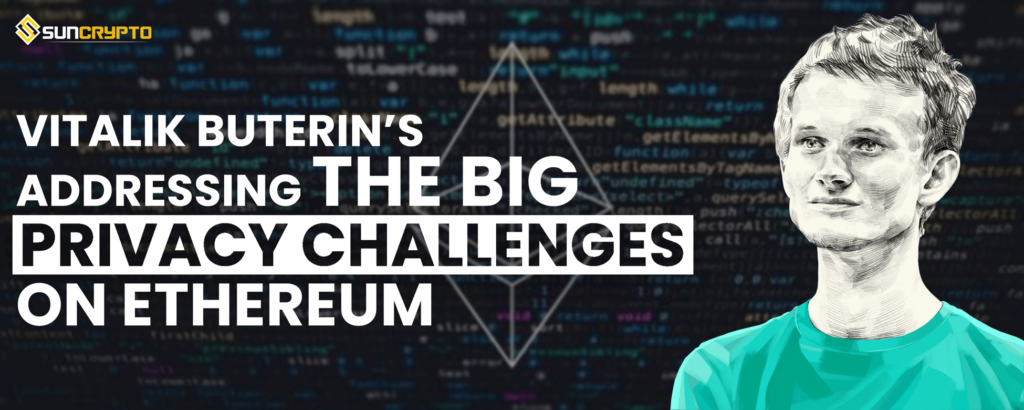Vitalik Buterin has come forward to address the big privacy challenges on Ethereum. Read about it here.
Ethereum is the most known blockchain which is preferred because of its various features. Even after its great functionality and great features, it is lacking in terms of privacy and a few other things.
Vitalik Buterin, the Ethereum co-founder has figured out a possible solution to deal with the privacy challenges for Ethereum. The founder has recently shared a blog post to explain his finding about a privacy solution for the information that directly goes to the public blockchain.
The blog post also included the topic of “stealth addresses” which has the power to anonymize peer-to-peer transactions, NFT transfers, and Ethereum Name Service Registration along with protecting users. The blog post mainly talked about how an on-chain transaction can be completed with full anonymity.

What’s The Solution For The Big Privacy Challenges On Ethereum
In order to create a stealth meta-address, a user seeking to receive assets must first create and store a “spending key.” The sender receives this address, which can be registered on ENS, and uses it to conduct a cryptographic calculation on the meta-address to get a stealth address that belongs to the recipient. The sender can then transfer funds to the recipient’s stealth address and publish a temporary key to verify the recipient’s ownership of the stealth address.
In short, when a sender starts a transaction, the stealth address accepts their payment. And sends the money to a location that the recipient is the only one who knows about. No one else will be able to witness the transaction or the money moving as a result.

As a result, a new stealth address is generated for every new transaction. Buterin stated that “In order to prevent the connection between the stealth address and the user’s meta-address from being publicly observed, a “Diffie-Hellman key exchange” as well as a “key blinding technique” would need to be created.” Vitalik has talked about this earlier as well he described stealth addresses as a “low-tech approach” in August for anonymously transferring ownership of NFTs or NFC-721 tokens.
Vitalik mentioned that
“Tornado Cash can hide transfers of mainstream fungible assets such as ETH or major ERC20s but it’s very weak at adding privacy to transfers of obscure ERC20s, and it cannot add privacy to NFT transfers at all”
Stealth addresses were developed as early as 2014, and have long been hailed as a remedy for on-chain privacy issues. But only a small number of solutions have so far been commercialized.
What’s More To Know?
According to Vitalik Buterin
“Basic stealth addresses can be implemented fairly quickly today, and could be a significant boost to practical user privacy on Ethereum.”
Further mentioning that there is a need for some work on the wallet side to support the stealth addresses. And in his wallets should start moving toward a more natively multi-address model for other privacy-related reasons as well.
According to Buterin’s suggestion, stealth addresses require introducing issues like social recovery. At the same time, the concept of stealth address has the potential to transform Ethereum. Users’ privacy will be improved, and Ethereum’s competitiveness against privacy coins may also improve.
However, given that privacy coins are not among their preferred cryptocurrencies, regulators could not be in favor of this structure. We have what’s the Vitaliks idea has the outcome after this description
Final Thoughts
In short, the big privacy challenges seen on Ethereum can be solved through that stealth address. With these, all the information that is directly being made available on the blockchain can be kept private except for the receiver and sender. With this, the transaction will be made without disclosing the information of the receiver.
For more updates related to cryptocurrency check out Suncrypto Academy.
Disclaimer: Crypto products and NFTs are unregulated and can be highly risky. There may be no regulatory recourse for any loss from such transactions. All content provided is for informational purposes only, and shall not be relied upon as financial/investment advice. Opinions shared, if any, are only shared for information and education purposes. Although the best efforts have been made to ensure all information is accurate and up to date. Occasionally unintended errors or misprints may occur. We recommend you to please do your own research or consult an expert before making any investment decision. You may write to us at [email protected].





